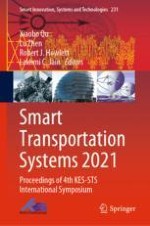2021 | OriginalPaper | Chapter
Impact of Ambient Temperature on Electric Bus Energy Consumption in Cold Regions: Case Study of Meihekou City, China
Authors : Mingjie Hao, Jinhua Ji, Yiming Bie
Published in: Smart Transportation Systems 2021
Publisher: Springer Singapore
Activate our intelligent search to find suitable subject content or patents.
Select sections of text to find matching patents with Artificial Intelligence. powered by
Select sections of text to find additional relevant content using AI-assisted search. powered by
